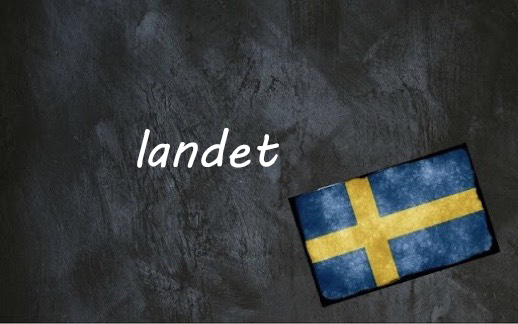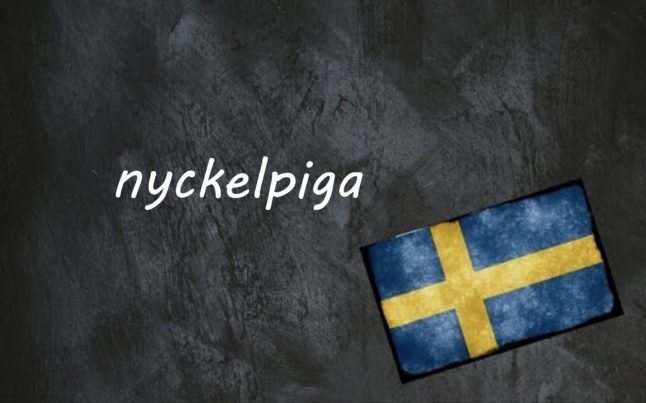Vi ska till landet till helgen literally means ‘we are going to the country this weekend’, and many a foreigner has wondered what mysterious country all the Swedes are travelling to. But the truth, as some of you might know, is that although landet means ‘the country’, it is not a country at all.
Landet is usually a little country house, sometimes just a cabin with an allotment, but some more fancy Swedes have several buildings and even a barn. It is the equivalent of a ‘weekend cottage’. Landet also goes by other names, such as, fritidshus (‘spare time house’), lantställe (‘country place’), semesterhus (‘vacation house’), sommarstuga (‘summer cottage’), sommartorp (‘summer croft), or just stuga (basically a ‘cottage’, which we have previously covered).
Landet then is just short for lantställe, but the confusion here of course is that it also literally means ‘the country’, as in a sovereign state, when in actuality we are talking about ‘the countryside’ which in Swedish is landsbygden.
The Swedish Academy gives us the following definition for lantställe: (större) fritidshus på landsbygden, a large spare time house in the country. They also give a less common alternative spelling: landställe.
Landet is an important place in Swedish culture, and is often used by Swedes to celebrate the various annual festivities, many of which involve different preparations of herring (or crayfish if it’s a kräftskiva). If you have never been to one and receive an invitation, you have to go. If you are lucky, you will never experience anything more Swedish.
Imagine traditional Swedish food (again crayfish and herring, plus some other bits), and Swedish snaps, the famed spiced spirit, with its traditional snapsvisor, the drinking songs, for reference see Swedish actress Alicia Vikander and famed American comedian Will Ferrell on The Jimmy Fallon show sing the most famous one, Helan går. Then some games, and then if you are really lucky, up steps a live band and you keep drinking, dancing and singing all through the night, until some people lose it and go skinny dipping in a nearby lake, or even worse, the sea. All in all, it is usually a great experience, with lots of fun.
Important to note here is that every time Swedes say that they have been to landet that does not mean that they have had a gigantic party with loads of alcohol, delicious food and singing. Sometimes they just go there to sit in silence.
Pro tip: if you wanna get invited to landet, tell a Swede you know that you have never been to a traditional Swedish festivity. They will take it upon themselves to show you what many believe to be the best of Swedish culture. The best time of year to do this is in August.
Example sentences:
Vet du var Olle är? Han är på landet.
Do you know where Olle is? He’s at his weekend cottage.
Vi ska ut till landet för Midsommar. Vill du följa med?
We’re going to the weekend cottage for Midsummer. Do you wanna come?
Villa, Volvo, Vovve: The Local’s Word Guide to Swedish Life, written by The Local’s journalists, is now available to order. Head to lysforlag.com/vvv to read more about it. It is also possible to buy your copy from Amazon US, Amazon UK, Bokus or Adlibris.



 Please whitelist us to continue reading.
Please whitelist us to continue reading.
Member comments